Alexander O'Connor
Shape of synth to come: Why we should use synthetic data for English surface realization
May 06, 2020
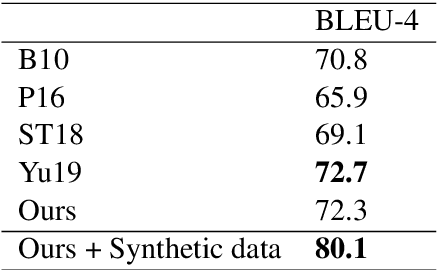

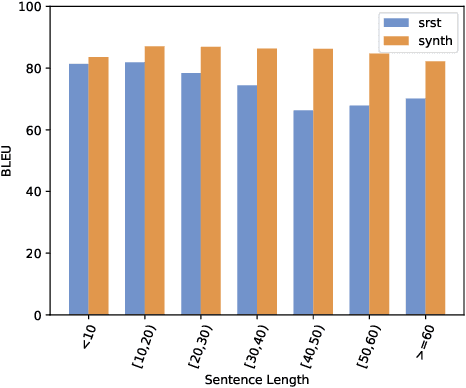
Abstract:The Surface Realization Shared Tasks of 2018 and 2019 were Natural Language Generation shared tasks with the goal of exploring approaches to surface realization from Universal-Dependency-like trees to surface strings for several languages. In the 2018 shared task there was very little difference in the absolute performance of systems trained with and without additional, synthetically created data, and a new rule prohibiting the use of synthetic data was introduced for the 2019 shared task. Contrary to the findings of the 2018 shared task, we show, in experiments on the English 2018 dataset, that the use of synthetic data can have a substantial positive effect - an improvement of almost 8 BLEU points for a previously state-of-the-art system. We analyse the effects of synthetic data, and we argue that its use should be encouraged rather than prohibited so that future research efforts continue to explore systems that can take advantage of such data.
Designing a Symbolic Intermediate Representation for Neural Surface Realization
May 24, 2019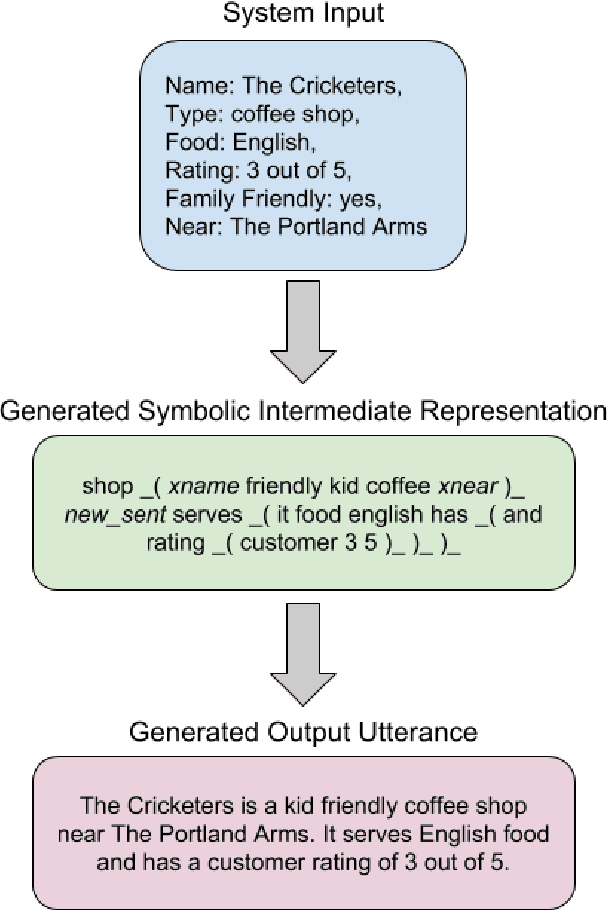
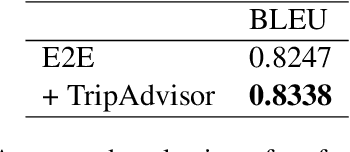
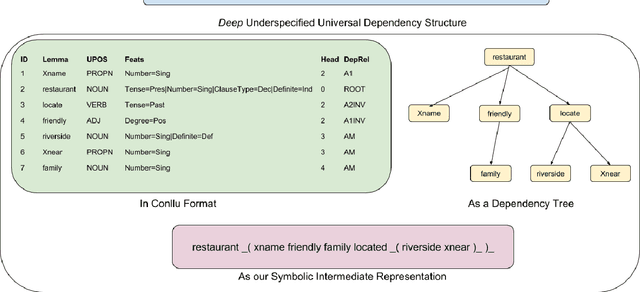

Abstract:Generated output from neural NLG systems often contain errors such as hallucination, repetition or contradiction. This work focuses on designing a symbolic intermediate representation to be used in multi-stage neural generation with the intention of reducing the frequency of failed outputs. We show that surface realization from this intermediate representation is of high quality and when the full system is applied to the E2E dataset it outperforms the winner of the E2E challenge. Furthermore, by breaking out the surface realization step from typically end-to-end neural systems, we also provide a framework for non-neural content selection and planning systems to potentially take advantage of semi-supervised pretraining of neural surface realization models.
 Add to Chrome
Add to Chrome Add to Firefox
Add to Firefox Add to Edge
Add to Edge